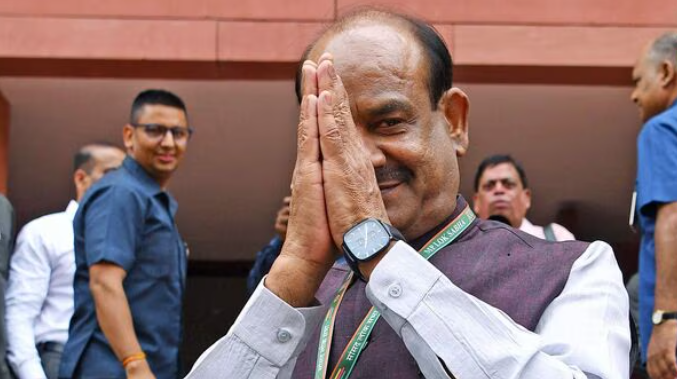Opposition Pushes for Deputy Speaker Post Amid Strengthened Position in Lok Sabha (GS Paper 2, Polity)

Context
- With the increased strength of the Opposition in Lok Sabha, there is a renewed push for the Deputy Speaker’s post.
- Unlike the 16th Lok Sabha (2014-19) where M Thambi Durai of the AIADMK, an ally of the BJP, held the position, the 17th Lok Sabha (2019-24) did not have a Deputy Speaker.
- Congress MP Rahul Gandhi has expressed willingness to support the NDA’s candidate for Speaker, provided the government adheres to parliamentary convention and allocates the Deputy Speaker’s post to the Opposition.
- Historically, from 1990 to 2014, the Opposition consistently held this position.
Constitutional Provisions for Deputy Speaker
- Article 95(1) of the Indian Constitution states that the Deputy Speaker performs the Speaker’s duties if the position is vacant and holds the same general powers when presiding over the House.
- Both the Speaker and Deputy Speaker must be appointed “as soon as may be” after the House is constituted, as per Article 93.
- The Constitution does not specify a strict timeline for these appointments, allowing for potential delays. However, the mandatory nature of these roles is underscored by the use of “shall” in the articles, implying an urgency in their election.
Election Rules and Historical Context
- The election of the Speaker typically occurs in the first session of the new Lok Sabha, usually on the third day following the oath-taking sessions.
- The Deputy Speaker’s election often takes place in the second session, although there is no restriction against holding it in the first session.
- Rule 8 of the Rules of Procedure and Conduct of Business in Lok Sabha governs this election, which proceeds once a motion proposing a candidate’s name is carried.
- The Deputy Speaker remains in office until the House is dissolved, and they can resign or be removed by a resolution passed by a majority of the House members.
Deputy Speaker’s Role in Absence of Speaker
Historically, the Deputy Speaker has filled in for the Speaker during vacancies. For example:
- After the death of Speaker G V Mavalankar in 1956, Deputy Speaker M Ananthasayanam Ayyangar assumed the role until the end of the Lok Sabha’s term.
- After Speaker GMC Balayogi’s death in 2002, Deputy Speaker P M Sayeed served as acting Speaker until a new Speaker was elected.
Opposition’s Historical Hold on Deputy Speaker Post
The post of Deputy Speaker has frequently been held by members of the Opposition, especially during Congress-led UPA governments. For instance:
- During UPA-I (2004-09) and UPA-II (2009-14), the position was held by Charanjit Singh Atwal of the Shiromani Akali Dal and Kariya Munda of the BJP, respectively.
- During Atal Bihari Vajpayee’s tenure as Prime Minister (1999-2004), P M Sayeed of the Congress served as Deputy Speaker.
- This pattern underscores the role of the Deputy Speaker as a critical element of parliamentary democracy, ensuring a balance of power and representation.
Significance of Deputy Speaker of Lok Sabha
The Deputy Speaker of Lok Sabha holds significant importance in the Indian parliamentary system. The major significance includes:
- Orderly Functioning of House: Ensures orderly conduct of proceedings, upholding the rules of the House, and maintaining decorum while presiding over the House.
- Representation and Inclusivity: Conventionally, the office of the Deputy Speaker goes to the Opposition Party/Alliance, providing representation to the opposition and promoting balance and inclusivity within the parliamentary system.
- Administrative Responsibilities: Shares administrative responsibilities with the Speaker, contributing to the effective management of parliamentary affairs.
- Contributing to Committees: Involvement in various parliamentary committees enhances the quality of deliberations and decision-making processes within these committees.
Conclusion
- The election and appointment of the Deputy Speaker in Lok Sabha are vital for the functioning and balance of parliamentary proceedings.
- The Opposition’s recent push for this post, backed by constitutional provisions and historical precedence, highlights the ongoing dynamics and negotiations within India’s legislative framework.
- By adhering to these conventions, the government can ensure a balanced and effective parliamentary system.


